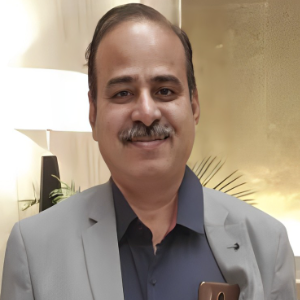The presence of the skin pigment melanin is essential to the appearance and health of skin. Melanin is a naturally occurring pigment that is responsible for providing skin with its colour and protection against the harmful effects of the sun. Although melanin is present in varying levels in all individuals, lower amounts of the pigment can put individuals at risk for certain skin conditions. In dermatology, lower levels of melanin, known as hypomelanosis, can result in numerous skin disorders. Skin ailments such as vitiligo, albinism, and post-inflammatory hypopigmentation are commonly the result of low melanin concentrations. When skin does not contain enough pigment, it is also more sensitive to light and the damaging UV rays of the sun. This can lead to increased susceptibility to sunburns, as well as the development of potentially harmful skin cancer. Conversely, when skin contains too much melanin, this can lead to an increased risk of pigmented lesions like moles, freckles, and age spots. In order to ensure healthy skin, it is important to keep melanin amounts at a normal level. Exposure to the sun is one of the main causes of decreased melanin levels; therefore, protective clothing, sunscreen, and avoiding prolonged sun exposure are all effective ways of safeguarding skin. There are also certain skin care products, including topical creams, that can be used to help increase melanin levels in the skin. Finally, medical treatments like laser therapy or light therapy may be prescribed to treat hypomelanosis. Dermatologists are experts in treating conditions related to low melanin levels and making sure individuals have healthy, vibrant skin. With the proper care and attention, individuals can maintain a good pigmentation level and reduce their risk for potentially dangerous skin ailments.

Ravi M Rathod
KMCRI, India
Dechelette Corinne
La Peau Autrement, France
Irina Sergeeva
Novosibirsk State University, Russian Federation
George Sulamanidze
Plastic Surgeon at Clinic of Plastic and Aesthetic Surgery and Cosmetology TOTALCharm, Georgia
Nino Tsamalaidze
Ltd Karabadini+, Georgia
Lina Petrossian
California University of Science and Medicine, United States
Surajbala Khuraijam
Manipur Health Services, India
Shrutimita Pokhariyal
Symbio, India
Yasser Mohammed Hassanain Elsayed
Egyptian Ministry of Health, Egypt



Title : Paraneoplastic Autoimmune Multiorgan Syndrome or PAMS: Paraneoplastic pemphigus revisited
Sergei A Grando, University of California Irvine, United States
Title : Modern non-invasive methods for in vivo assessment of skin
Georgios N Stamatas, SGS, France
Title : Personalized and precision dermatology through the view of biodesign-inspired translational & data-driven applications: Revolutionary skin treatments for every concern in clinical dermatology integrating skin care experts and consumers
Sergey Suchkov, N.D. Zelinskii Institute for Organic Chemistry of the Russian Academy of Sciences, Russian Federation
Title : The next generation of threads: Lifting, volumization, and biostimulation in one powerful triple action
George Sulamanidze, Plastic Surgeon at Clinic of Plastic and Aesthetic Surgery and Cosmetology TOTALCharm, Georgia
Title : Lymphoproliferative diseases in the practice of a dermatologist
Irina Sergeeva, Novosibirsk State University, Russian Federation
Title : Art, skin, and dermatology: Interdisciplinary perspectives
Dechelette Corinne, La Peau Autrement, France
Title : Comparative efficacy of omalizumab and dupilumab in children with Chronic Spontaneous Urticaria (CSU): A retrospective cohort analysis
Molynna Nguyen, University of Toledo, United States
Title : "Mirror mirror on the skin” — A low-cost community strategy to reduce melanoma disparities in Washington, D.C.
Kayla Sampson, Georgetown University School of Medicine, United States
Title : Vitiligo: Not just an aesthetic disorder
Mateja Starbek Zorko, University Medical centre Ljubljana, Slovenia
Title : Personalized and Precision Medicine as a unique avenue to have the healthcare model renewed to secure the national biosafety: Advanced skincare solutions in individualized cosmetology, reconstructive plastic surgery and the modern beauty
Sergey Suchkov, N.D. Zelinskii Institute for Organic Chemistry of the Russian Academy of Sciences, Russian Federation